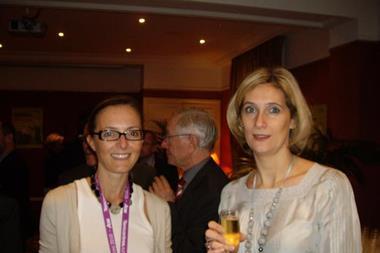A dramatically different risk environment obliges companies to reassess their exposures, conference hears
Risk and insurance professionals from around the French speaking world gathered in Deauville Tuesday (January 27) for the 18th AMRAE Les Recontres, the annual French risk summit, which this year took as its theme “New world : New risks.”
Speaking to StrategicRISK on the opening day of the conference Michel Yarhi, former chief of the French risk association AMRAE, warned that in a highly dynamic and recessionary risk environment companies are not doing enough to accurately disclose how their risk profiles have changed.
A widening gap between the commercial risks that companies are currently facing and the exposures that they present to their insurers is leaving shareholders exposed, insisted Yarhi.
“Organisations are faced with many new risks today," he said. "One of the greatest is that companies fail to take account of the risks which exist outside their immediate control.”
Risk managers are responsible for this difficult task. The problem, however, is that too often they lack the seniority to be accurately informed about the rapidly changing risk dynamics that affect their company, noted Yarhi.
“Risk managers should operate at a strategic level so that they know what is occuring and are able to adapt the company's activities and its controls to the new risks. They should have a strategic influence on the direction of their company,” he said.
Also, as the former head of risk at French investment bank Société Générale, Yarhi went on to explain some of the problems with risk management in the financial sector. He said that some banks made the mistake of failing to appreciate how external factors could affect the severity of a risk.
The Kerviel fraud at SocGen was made far worse because of market conditions, he explained. Had Kerviel’s rogue trades been carried out in a Bull market the bank would have made a “huge profit”, argued Yarhi. As it turned out Kerviel bet the bank during a Bear market and thus exposed it to a catastrophic loss.
“It proves that the risk itself can provoke a certain amount of loss, but it depends also on something else, in that case on the way the market was reacting. So there is not only one cause of the risk, very often the ammount of the loss depends on several different causes,” he said.
Risks cannot be analysed in isolation, Yarhi insisted. “When you study a risk don’t study it alone, try to imagine other scenarios that would make it worse. ”
At the same time he urged companies to avoid being overconfident with their risk management controls and procedures. “We have seen what can go wrong when companies are too confident in their approach, ” he said.
The former banker also indicated that he was in favour of a bankers' bonus tax. “Why has the market accepted to give such high bonuses to people? I cannot understand it,” he said.
President Barack Obama indicated in his recent State of the Union address that he would impose a tax on bankers’ huge bonuses. France and Britai both announced similar measures to counter excessive risk taking.
Yarhi noted that governments around the world have the public backing to push through dramatic changes to regulation in the financial sector. “The public is ready to accept these changes because the crisis was due to the behaviour of bankers, ” he said.
Downloads
AMRAE Daily (Day 1 - French Language)
PDF, Size 3.89 mbAMRAE Daily (Day 2 - French Language)
PDF, Size 4.46 mb



















